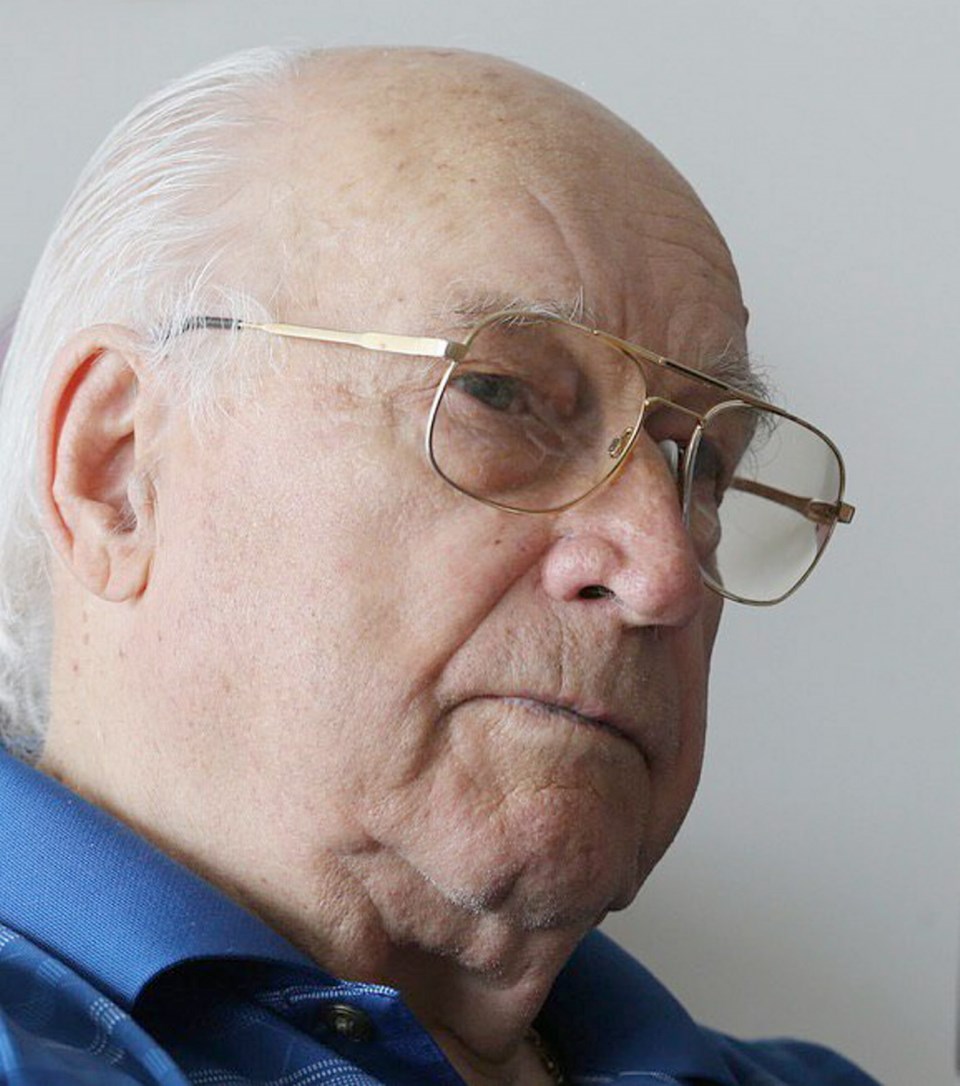Ken Curry was the last man standing. When his friend Fred Engelbrecht died in 2018, that left Sidney’s Curry as his old regiment’s sole remaining survivor of Dieppe — the only one who could remember the slaughter, the water red with the blood of dead and dying Canadians, the screams of the wounded as the shells rained down from clifftop artillery, the sheer waste of it all.
And now Curry is gone, too, at the age of 97.
The Dieppe raid of Aug. 19, 1942, was Canada’s costliest day of the Second World War. Of the 5,000 Canadians — along with 1,100 British and 50 Americans — who waded onto the beach of the French seaside town, more than 900 were killed and 2,400 wounded.
Among the dead were 197 of the 582 men of Curry’s outfit, the Royal Hamilton Light Infantry. Only 211, more than half of them wounded, made it back to England. The rest, including Curry, were taken prisoner.
“Dieppe was one big fiasco,” Curry said a few years ago. He didn’t buy into the argument that the raid provided crucial lessons for D-Day two years later. His regiment saw more soldiers killed that morning than Canada lost in 13 years in Afghanistan.
Dieppe was a massacre from the moment the raid began. The Bren gun carrier that Curry followed out of his landing craft was blown from the water. The 20-year-old bandaged the knee of his wounded sergeant, but the man later died from a bullet to the head.
Machine guns chewed into the Canadians from the windows of beachfront hotels — no aiming, the Germans just had to pull the trigger. Four of the seven men who wrestled Curry’s mortar and ammunition ashore were cut down. Curry fought back. “I fired 32 bombs into them, but I don’t think it did any good.”
The Allies spent the morning pinned on the beach before the navy put down a smokescreen and the evacuation began.
Curry used four captured Germans to bundle two wounded men onto a boat. The coxswain wouldn’t let anyone but the wounded aboard, though, so Curry took his four Germans and tried another vessel, only to end up back in the water after it took three direct hits and started to sink.
Curry spent another five hours in the water, at one point finding himself in the middle of what he at first thought were little jumping fish, but turned out to be bullets hitting the surface. Swimming to a landing craft that was idling in neutral, he used ropes to haul himself up the side — only to find the vessel full of dead bodies. He also saw a Spitfire and a Messerschmitt, lost in their own private war, crash into the cliffs.
Eventually, the exhausted Curry was washed ashore where, having stripped off his waterlogged uniform, he was taken prisoner in his underwear.
Marched into a factory where other prisoners were corralled, he came across his brother, Norman, fast asleep. Norman began to cry; he had been told Ken was dead. (Their mother later got a telegram to that effect, which put her in hospital for two weeks.) It was Norman who saw the bullet crease on Ken’s back.
The prisoners were loaded 80 to a boxcar and shipped to the notorious Stalag 8B on the Polish-German border. Curry spent two years and nine months as a PoW, far from Norma, the English girl he had married just a week before the raid — not long enough to really get to know her, but long enough for her to become pregnant. Their marriage lasted until her death in 2016.
Curry never stopped being appalled by the way the raid was planned. They never should have tried a head-on attack in daylight, he said. Shouldn’t have sent tanks onto a rocky beach where they would lose their treads. Should have taken out the gun positions.
Instead of what they were told would be tired German troops recovering from the Russian front, the Canadians were met by crack SS and tank regiments. The result was a shooting gallery in which the men he had spent four years training with, sleeping beside and eating with were wiped out in four hours. “How the hell do you forget that?”
By the raid’s 75th anniversary in 2017, Curry and Engelbrecht were the regiment’s only survivors. Curry flew to Ontario to spend the day with his old friend.
They didn’t spend much time rehashing the war, he said. “We talk about how sore our legs are and who’s going to die first. He said: ‘My doctor says I’m going to live to 100.’ I said: ‘My doctor says I’m going to live to 102.’ ”
When Engelbrecht died in 2018, Curry and daughter Lillian — the one who was born while he was a PoW — flew to Ontario for the funeral. They flew to last year’s Dieppe memorial service in Hamilton, too.
On April 17, Ken Curry, the last man standing, died of natural causes.
“I still remember everything very clearly about Dieppe and I probably will until the day I die,” he said in 2017. “I lost a lot of friends.”



